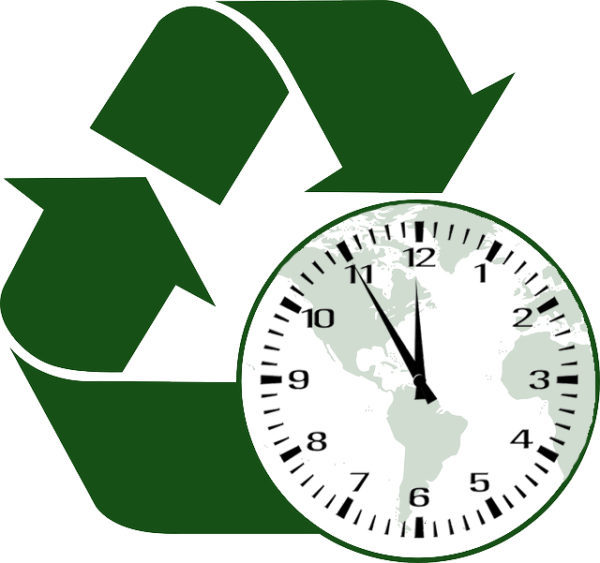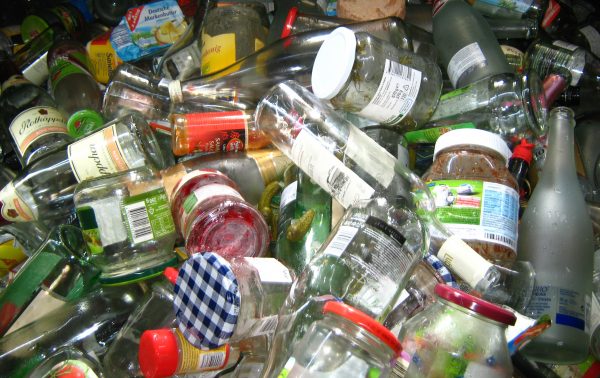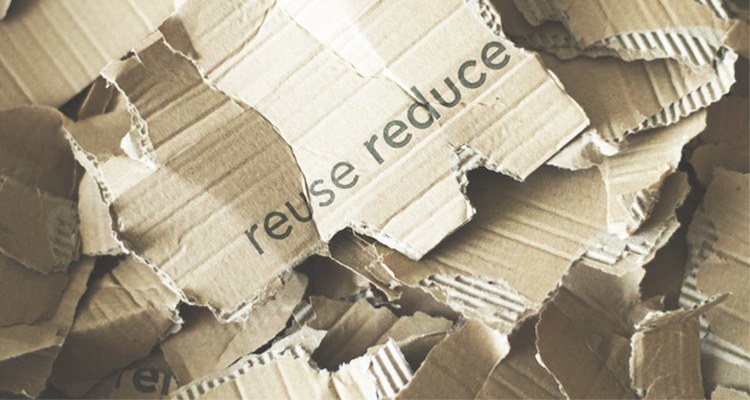Editor’s note: As part of a continuing series, Wheeling officials recently shared the city’s recycling/garbage program may be up for changes both small and large in order to cope with a global crisis in the recycling network that has set new limits on how city and county residents can be green. (weelunk.com/time-to-green-up-mayor-says-its-time-to-make-a-move)
Today’s Weelunk post reflects a look at six other communities — both larger and smaller than Wheeling, four of them in state and two in neighboring states. The only consistency among the locations is that recycling is tough all over. Information from four of the six cities is largely left out of this story, in fact, because it simply didn’t check out. Some officials declined to talk on the record or to respond at all. One apologized for the limited state of recycling his city currently offers. Concerning two cities, it remains unclear if materials collected at curbside are actually being recycled.
Here is what Weelunk found:
Even a small review of sanitation plans around the state and across each border reveals a diversity of recycling- and garbage-collection methods that ranges from key fobs that grant access to gated bins to drive-thru convenience to a virtual patchwork quilt of private contracts that may or may not be working.
Ironically, that diversity is driven by the same international meltdown of the recycling system that recently shuttered drop-off bins at Oglebay Park and in the Clearview community and has the city looking for new ways to steer more second-life items clear of the landfill. Tightening standards in China, which until the last couple of years was the world’s main buyer of recyclable materials, mean what is collected here and everywhere must be cleaner and more pure than ever.
Two communities appear to have found models that are working well, at least for now.
The Pioneer
A near meltdown of both Huntington’s and Cabell County’s recycling system in the last couple of years drove that location to innovate, according to Mark Buchanan, executive director of the Cabell County Solid Waste Authority. Now, there are no more unsupervised bins. No more curbside collection that very possibly was headed to the landfill. And less political debate over “unfunded mandates.”
“We hit bottom,” Buchanan said. “But we’re now headed back up.”
What saved the county from a complete breakdown in government-sponsored recycling, something Buchanan said has already happened in some of Cabell’s neighboring counties, basically boiled down to money, cooperation and technology.
In September 2017, the authority began issuing key fobs that grant access to gated recycling bins housed at an old armory that offered the space and an office at an almost negligible cost. Add in a grant, a $75 annual fee for each fob, some fencing, a staffer and a tech-driven system that only lets in pre-approved recyclers. The system is rolling again, collecting about 300 tons of clean, pure recyclables in its first year of operation, Buchanan said.
Many of the problems that nearly killed Cabell recycling simply disappeared with the new system, he said. Prior to the fobs, the authority had eight, unsupervised drop-off points around the county of nearly 100,000 residents. “People would drop off construction debris, mattresses,” he said. The authority was spending money to clean up messes and to landfill the materials, which were too contaminated by non-recyclables to be baled and sold on the commodities market. (The same problem is what closed a similar drop-off program in Ohio County in September. weelunk.com/time-to-green-up-all-greened-up-but-nowhere-to-go)
The grant and fob fee also solved the money problem. The county and municipalities were struggling to fund recycling, but the direct household-pay plan not only covered the first year of operation, Buchanan said it has sparked a renewed commitment from government. He learned in recent days that the Cabell County Commission will be sponsoring the program through fall of 2019, meaning the fobs will still be around, but in-county recyclers will not have to pay for them.
A third problem involved moving away from “good faith” agreements with private, for-profit haulers to one involving a legal agreement, he added. Concerned a previous hauler working with the city of Huntington might have been taking curbside recyclables to a landfill, the authority’s collection contract includes a signed affidavit from current collector Rumpke Waste Removal and Recycling. The affidavit promises the materials will go into the recycling stream. This promise is made financially easier to keep given Rumpke has its own sorting and baling facility across the Ohio border, which allows it to sell directly onto the commodities market in addition to receiving payment for collecting the products.
Buchanan acknowledged that, even with an affidavit and a mostly closed financial loop, Rumpke faces the same difficult industry conditions other recyclers do. The changes in China mean it’s growing more and more difficult to sell baled recyclables anywhere in the world. But, so far, so good, he said. The paper, cardboard, cans, glass (of all colors) and necked plastic bottles are collected in a mixed state (as opposed to pre-sorted), but the lock-and-fob-and-staffer have kept the purity high enough that materials are, indeed, headed for second lives.
 That’s not to say there haven’t been problems. At first, residents were angry about paying for what had previously been a free service, he said. As the dire state of international recycling became more common knowledge, however, people literally bought in. In the earliest days, 200 households purchased fobs. By the end of the first year, 600 households were participating, some of them from out of county. The program continues to grow. There are now two gated sites and a mobile drop-off truck that serves more remote parts of the county.
That’s not to say there haven’t been problems. At first, residents were angry about paying for what had previously been a free service, he said. As the dire state of international recycling became more common knowledge, however, people literally bought in. In the earliest days, 200 households purchased fobs. By the end of the first year, 600 households were participating, some of them from out of county. The program continues to grow. There are now two gated sites and a mobile drop-off truck that serves more remote parts of the county.
There was also a lot of data entry at the front end, and the occasional key fob got lost in the mail. All in all, he said, it has been worth it. “It’s a two-way street (now). They (private hauler Rumpke) make their money, and that’s fine. We have responsible resource management.”
The Patchwork Plan
Wetzel County Solid Waste Authority has a program that is similarly innovative, yet totally different, geared to a county with a much smaller population. New Martinsville, the county seat, is so small (the entire county has about 16,000 residents) it falls outside West Virginia’s recycling mandate. But that hasn’t stopped them.
Terri Tyler, authority executive director, has pieced together a comprehensive, no-fee recycling program in spite of obstacles such as no curbside recycling anywhere in the county and no facilities to store any recyclables that are collected.
It’s all about the pre-sort, said Tyler, who giggles with joy when explaining the program she launched in 2014. “I guess you could say it’s my baby.”
Each Saturday morning, vehicles from about 100 households and businesses drive through the authority’s downtown facility. Participants — some of whom come from Ohio or as far north as Moundsville — pre-clean and pre-sort it all. And, “all” covers a lot. The authority takes plastics 1, 2, 4 and 5; cardboard and food-box board, newspaper, junk mail, office paper, shredded paper, books and magazines; steel and aluminum cans; and clear, brown and green glass.
 “You pull into our lot. We have two lanes,” Tyler said. “We grab it out, close your lid and off you go.”
“You pull into our lot. We have two lanes,” Tyler said. “We grab it out, close your lid and off you go.”
It takes three to five minutes for recyclers. For Tyler and the part-time crew staffing the drive-thru, the work has just begun, however.
With no room to store the recyclables on site, the authority immediately launches a complex series of drop-offs and pickups. Glass goes to a Pennsylvania facility that re-manufactures it into the beads used for sandblasting. All other materials are taken to organizations that bale and sell onto the commodities market. Goodwill Industries of Keyser takes books and junk mail. Pleasants County’s own authority takes cardboard and plastics. A facility in Ohio also takes items.
Aluminum, the only recyclable that makes income, is brought to Strauss Industries in Wheeling. Profits are awarded on a rotating basis to seven county schools that participate in the recycling program, she explained.
“We wanted to recycle,” Tyler said, noting that single-stream or un-sorted recycling would not work in rural Wetzel given current industry circumstances. “This is what we were able to do.”
Her own ingenuity aside, she credits county residents for hauling in 150 tons of recyclables per year. “We just really appreciate everyone. All of our recyclers — they are very good at following the rules.”
The Privateers
Outside of these two counties, it is less clear what is working and what is not.
While Weelunk does not feel comfortable listing source and city names given the disparity of information coming in from different individuals, here is a quick peek at what we found.
• Two cities, one in state and one out of state, contract with a large for-profit company. Households in both cities pay about $3 to $5 more than Wheeling households pay per month for combination garbage/recyclable collection.
• On the recycling end, both municipalities continue to collect mixed glass, plastic, paper, metal cans and even pizza-box tops at curbside. But what happens to those items once they enter the recycling truck could not be determined. Follow-up questions to spokespersons for both the collection company and a sorting facility generated unclear answers as to whether the materials are making it to the sorting/baling stage.
• Public works officials in another large West Virginia city, which recycling experts in other counties claim has completely shut down its recycling program, did not respond to repeated requests for an interview.
• A small city in a neighboring state continues to function in a tough market, but an official there said residents are largely on their own. In St. Clairsville, Ohio, Jim Zucal, director of public services and safety, said that city’s 5,200 residents choose among a handful of garbage haulers (rates vary) and can bring recyclables to a set of county bins managed by JB Green Team, a private contractor. He said the city would like to offer more, but that that is what is working right now.
• Nora Edinger writes from Wheeling, W.Va., where she is part of a three-generation, two-species household. A long-time journalist, she now writes in a variety of print and e-venues, including her JOY Journal blog at noraedinger.com. Her first work of fiction, a Christian beach read called “Dune Girl,” is available on Amazon Kindle.


